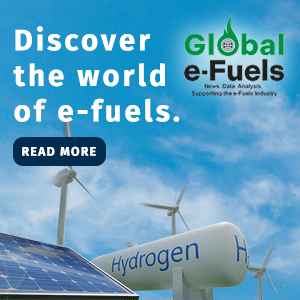‘All for the flow’
Can you tell us a little bit about yourself and what HTC does?
In 1998, HTC started its first tank cleaning station on a strategic location close to the highway between the port of Antwerp, in Belgium, and Germany.
It proved to be a success and very soon HTC developed into a larger group with four cleaning stations across Belgium. We clean a very wide range of products from food to different types of chemicals. In Antwerp, we have a closed cleaning bay with activated carbon filters to deal with pungent products like acrylates. At HTC-Container Services we have a depot to store about 700 tank containers. I had the chance to join the company in 2002. Today I’m responsible for our two cleaning stations in Antwerp, but I am also the first contact person for all of our customers.
What different aspects of the tank cleaning industry are you involved with?
HTC has always been a service provider to the logistic industry. Following consultations with one of our customers in the Herenthout region, we have turned a cleaning bay into an exclusive food lane facility. Furthermore, at HTC-Seneffe two new food lanes were developed in addition to the existing cleaning bays as we saw an increase in demand for food grade cleaning. At both cleaning sites, we are EFTCO approved and we have kosher accreditation too. In the port of Antwerp, HTC focuses much more on chemical products. With a total of seven cleaning bays at HTC Colombus and four container stores at HTC-Container Services we are able to ensure that an efficient service is provided to our customers.
HTC, over the years, has developed more into a one-stop-shop concept.
We are active in the cleaning of all types of products, we have installations for heating and steaming of loaded tanks and we have a storage depot for about 700 empty tank containers. We work closely together with our partner ITACT which has a fully equipped workshop for repair and maintenance services at our depot.
Recently, ship cleaning has become a new activity we have become involved in. The concept is the same as a regular tank cleaning, but volumes are, off course, much bigger.
Following on from tank cleaning activities, HTC is also active in the waste water treatment front. Every HTC cleaning station has its own water treatment centre and in Antwerp and at HTC-Wallonie we are fully equipped for the treatment of external waste water.
Can you outline the processes that you use?
HTC has more than 20 years’ experience in the tank cleaning business. Besides our well trained and experienced staff, we are becoming more involved in intelligent software.
We already have a database with more than 20,000 products, linked to different kind of cleaning programmes. We are also working on a system that takes external conditions, like the weather, into account. HTC is also one of the first cleaning stations to integrate the ECLIC-platform for electronic cleaning documents (ECD) into our own software, so we can easily switch from paper to electronic versions.
Health and safety is paramount within the tank cleaning industry. What steps do you take to ensure these high standards are maintained?
The safety of our customers is also something we always put first. Each HTC cleaning station is fully equipped with safety lines which the drivers need to connect to, before entering the tanks. For every new cleaning request, we always carry out full safety checks on the product before the work is carried out.
What about sustainability when it comes to water usage and energy saving. Is this an area that HTC is aware of and is looking to improve?
As a tank cleaning station we use a lot of water and energy and it is our duty to minimise the impact on environment. This is not only to do with sustainability, but also cuts operational costs. It is a win-win situation if we can reduce the consumption of water and energy. We have been looking into filtering dock water and if we can succeed in this, our water balance will be zero as we will discharge the purified water back into the docks. On energy saving, we have optimised our steaming boilers to have minimum gas consumption. Over the years we have changed all our cleaning heads into water driven rotation heads. As they spin around with the pressure of the water, there is no consumption of energy anymore.
The company has been around for 20 years – how much has it grown within that space of time and do you have any further expansion plans?
From a small cleaning station in Herenthout, HTC has grown from strength to strength. Again we have listen to our customers and the market and we still see further growth in the tank cleaning industry. Logistics is becoming a global industry and we want to be ready for the future. We are now working on a new ambitious project in the Port of Antwerp. We are going to build our third fully equipped tank cleaning station there and the site will include new tank cleaning facilities, a storage area for about 3,000 containers, heating facilities as well as outside wash and repair areas. We want to take the one-stop-shop idea a step further. Two years ago we rebranded and changed our slogan to “All for the flow”. This means having respect for everything that flows- for water, for the seas, for nature, but also for our customers. Our partnerships goes further than business, we try to do it all together.
For more information: Visit: htctc.com








